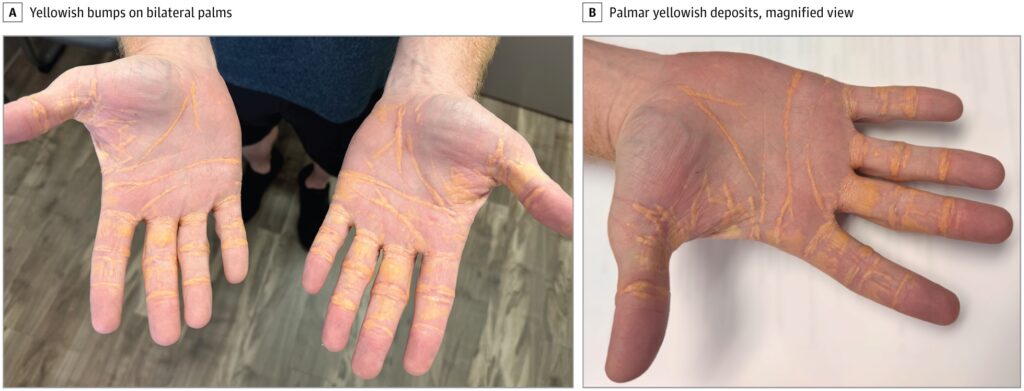Edit Content
Trending






Psoriasis affects about 3% of all adults in the United States, and Asian Americans have a lower-than-average risk for psoriasis. However, it’s believed that psoriasis may be underdiagnosed among Asian people. Plus, for those who have it, psoriasis may be more severe in Asians than in other ethnic groups.
Psoriasis is a chronic inflammatory skin disease that causes patches of thick red or purple skin with silvery scales that may be very itchy. In severe cases, psoriasis may cause joint pain and nail changes.
Besides the physical effects on your skin, the visibility and chronic nature of psoriasis patches are also associated with anxiety and depression.
These symptoms can be magnified in Asian populations for cultural reasons, some research suggests.
The prevalence of psoriasis in Asian countries is low compared with the U.S. Even within the U.S., people with an Asian background are less likely to have psoriasis. An estimated 2.5% of Asian Americans may have psoriasis, compared to 3% of all adults in the general population.
Although the overall risk seems to be lower among Asian people, some research suggests Asians have a higher risk of more severe psoriasis. Researchers have found that Asian people who seek medical care tend to show up with more severe psoriasis involving greater body surface area than non-Hispanic whites.
Despite having potentially more severe psoriasis, Asian people may receive the least medical care for the condition. Researchers haven’t pinpointed why, but one study suggests time spent in an appointment could be a factor.
The study found an association between race and ethnicity and visit duration with a dermatologist (a doctor specialized in conditions of the skin, nails, and hair). Dermatologists spent an average of 40% less time with their Asian patients who had psoriasis than their Hispanic, non-Hispanic white, and non-Hispanic Black patients who had psoriasis.
Experts can’t fully explain the reasons for differences in prevalence and severity, but there may be cultural and social reasons why psoriasis tends to be more severe in Asian people.
While the study on dermatology visit times didn’t determine why Asian people had the shortest visits, the researchers speculated that cultural differences in communication between provider and patient could be at play, along with implicit biases (attitudes toward a group you’re not even aware you have).
Psoriasis may also be more severe among Asians because the group tends to have a lower adherence to treatment (not taking or doing treatments as prescribed). Researchers suggest this may be because the people with psoriasis think treatment isn’t working, doesn’t look nice, or takes too long.
Other factors like stress also seem to affect ethnic groups differently. Asian people with psoriasis report stress—a known trigger for psoriasis flares—more often than other groups do, especially as a factor that makes their psoriasis worse.
Further, alternative medicine and therapy, such as herbal medicines, are widely used in Asian nations. In Asian countries, there may be greater encouragement toward this kind of treatment over modern, proven therapies, some research says. Herbal medicines may be inconsistent in strength and efficacy between batches and may not be suitable for use on sensitive skin.
More research may be needed to help better understand the differences in psoriasis severity between Asian people and people of other ethnicities.
The goal of psoriasis treatment is to help control your symptoms. The standard treatments include:
However, most treatment guidelines were developed based on clinical trials conducted on white people, and a potential side effect of many topical treatments is a change in skin color.
Phototherapy, though an effective treatment, may potentially lead to dark spots. This effect is usually temporary and may fade after you finish or stop treatment.
You can expect your healthcare provider to develop a treatment plan based on your needs. They will consider the type, location, and size of your psoriasis, how sensitive your skin is, and any other medications you take or medical conditions you have.
Remember that a thorough exam from your healthcare provider is essential to determine the type of psoriasis you have, how severe it is, and how it’s affecting your life. A shorter visit means less time to assess your psoriasis and discuss your treatment, and a visit that’s not thorough enough could result in an ineffective or incomplete treatment plan.
It’s okay to advocate for yourself and your care if you and your healthcare provider don’t seem to be aligned.
Taking care of your skin in general and between visits to your healthcare provider is important for relieving your psoriasis symptoms.
The skin patches can be itchy and dry, so properly moisturizing your skin protects and helps prevent psoriasis flare-ups.
Avoid taking long, hot showers and baths, which can cause dryness and irritation. Instead, limit showers to five minutes and baths to 15 minutes using warm water. You can also use a moisturizing, gentle cleanser made for sensitive skin, avoiding harsh scrubs, loofahs, and bath puffs.
After you bathe, gently blot your skin dry and apply a fragrance-free moisturizer while your skin is still damp. A good moisturizer seals the water into your skin. Apply moisturizer at least once a day and always right after showering. Choose a thick cream or ointment, which seals water better than lotion.
Other tips for controlling your psoriasis symptoms and preventing complications are:
There are many online support groups if you have psoriasis. Try searching on Google or Facebook groups to find one that appeals to you. These resources may also be helpful for information and support:
Psoriasis is a common skin disease that causes thick, dry, irritated patches. Although Asian people have a lower risk for psoriasis than the general population, they’re often diagnosed with more severe cases of psoriasis than other ethnicities.
Researchers aren’t yet sure why, but cultural attitudes and misconceptions seem to contribute to the difference in disease severity.
©2024. Livebuzznews. All Rights Reserved.